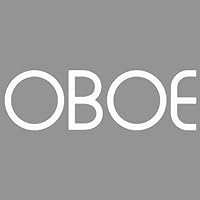In the realm of modern computing, the versatility of a laptop is often determined by the array of connectivity ports it boasts. These ports not only enhance the functionality of your device but also facilitate seamless interactions with a variety of external devices and peripherals. Let’s delve into the essential ports that contribute to the makeup of a good laptop.
- USB Ports: The ubiquitous USB port is a cornerstone of laptop connectivity. A good laptop should feature at least two USB ports, preferably USB 3.0 or higher, to enable swift data transfers with devices such as printers, scanners, and hard drives.
- HDMI Port: For presentations or multitasking with external displays like TVs or monitors, an HDMI port is indispensable. This port ensures a hassle-free connection between your laptop and external screens, expanding your workspace and enhancing your viewing experience.
- Ethernet Port: In environments where a wired network is preferred for its speed and security, an Ethernet port becomes crucial. This feature is particularly essential in corporate or office settings where a stable and fast connection is paramount.
- SD Card Slot: Photographers and content creators rejoice – an SD card slot is a must-have for effortlessly transferring files from digital cameras or devices that utilize SD cards. This port streamlines the process of importing and exporting multimedia content.
- Thunderbolt 3 Port: For users seeking lightning-fast connections, a Thunderbolt 3 port is a game-changer. This versatile port facilitates rapid connections with external hard drives, monitors, and even external GPUs, outperforming the data transfer capabilities of USB 3.0 or 2.0.
- Audio Jack: Beyond built-in speakers, an audio jack is essential for connecting external speakers or headphones, ensuring a personalized and immersive audio experience. The 3.5mm audio jack remains a standard feature on most laptops.
- USB-C Port: The evolution of USB technology brings us the USB-C port, offering versatility for data transfer, charging, and video output. Faster than its predecessors, USB-C enhances the overall connectivity of a laptop.
When seeking a laptop that aligns with your connectivity needs, consider HP’s impressive lineup. The 15s-eq2182AU with Windows 11, 16GB RAM, and a 512GB SSD, accompanied by built-in Alexa, is a stellar choice for those seeking a blend of performance and innovation. Alternatively, the high-end Firefly series offers a top-tier alternative for users with discerning requirements.
In conclusion, the importance of having the right connectivity ports on your laptop cannot be overstated. As you embark on the journey of choosing your ideal device, explore the options available, and opt for a laptop that seamlessly integrates with your digital lifestyle. With the right ports at your disposal, your laptop transforms into a hub of productivity and creativity. Explore, connect, and elevate your computing experience!
Check out HP business laptops online.

































